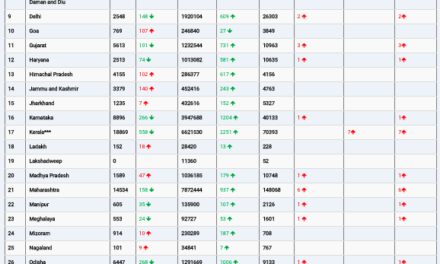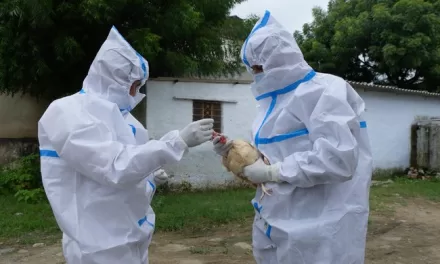Oregon State University Researchers Discover Novel Therapy
Researchers at Oregon State University have achieved a groundbreaking advancement in breast cancer treatment by identifying compounds that transform the Bcl-2 protein, a well-known protector of cancer cells, into a tumor killer. This revolutionary finding offers a promising new approach for treating breast cancer and potentially other cancers that rely on Bcl-2 for resistance to therapy.
The multi-year study conducted by OSU researchers has revealed that these compounds can alter the shape of Bcl-2, enabling it to induce cell death rather than protect cancer cells. This mechanism could significantly impact how we address cancers that have previously been resistant to conventional treatments.
Siva Kolluri, a professor of environmental and molecular toxicology at the College of Agricultural Sciences, emphasized the significance of targeting Bcl-2. “The holy grail in cancer research is finding a molecular target that plays a major, essential role in cancer cell growth without affecting normal cells. Cancer cells hijack pathways that regulate cell proliferation and death, and Bcl-2 is a critical player in this process.”
Mechanisms of Cell Death
Under normal conditions, cells undergo a programmed death process known as apoptosis, which is crucial for maintaining cellular balance. Cancer cells often bypass this process, leading to uncontrolled growth and metastasis. Bcl-2, an anti-apoptosis protein, is produced at elevated levels in some cancer cells, allowing them to evade cell death and grow unchecked.
While Bcl-2 inhibitors have been effective in treating certain blood cancers, they have not been as successful for solid tumors like breast cancer. Kolluri explained, “Cancer cells are adept at finding ways to survive. Existing therapies may work temporarily, but cancer cells eventually adapt. Our approach fundamentally changes Bcl-2’s function, turning it from a protector into a killer of cancer cells.”
Breakthrough Research on Triple-Negative Breast Cancer
The study, led by Kolluri and Christiane Löhr, professor of anatomic pathology in the Carlson College of Veterinary Medicine, focused on triple-negative breast cancer, a particularly aggressive form of the disease. This subtype, which lacks three specific receptors found in other breast cancers, accounts for about 20% of all breast cancer cases and is associated with poor prognoses.
Their research, published in Cancer Research Communications and ACS Pharmacology and Translational Science, demonstrates how their compounds induce Bcl-2’s “killer conformation,” leading to cancer cell death and suppression of metastasis in mouse models.
Löhr highlighted the potential of these findings, stating, “This approach is promising because many metastatic cancers exhibit high levels of Bcl-2. By altering Bcl-2’s conformation, we can target cancers resistant to other treatments while sparing normal cells.”
Future Steps and Implications
The researchers acknowledge that their discovery represents a major leap forward but emphasize that further research is needed. The next steps involve identifying partners to advance the research toward clinical trials in humans and exploring potential veterinary applications.
Kolluri noted, “We’ve laid the groundwork and demonstrated proof of concept. The challenge now is to advance these compounds through preclinical models and ultimately into human trials.”
The potential for this research extends beyond human medicine, with possible applications in treating lymphoma in dogs, potentially easing the transition from laboratory to veterinary use.
For more details, refer to the studies:
- “Identification and Characterization of a Small Molecule Bcl-2 Functional Converter” by Prasad R. Kopparapu et al., published in Cancer Research Communications, DOI: 10.1158/2767-9764.CRC-22-0526.
- “Small Molecule Functional Converter of B-Cell Lymphoma-2 (Bcl-2) Suppresses Breast Cancer Lung Metastasis” by Prasad R. Kopparapu et al., published in ACS Pharmacology & Translational Science, DOI: 10.1021/acsptsci.3c00360.











